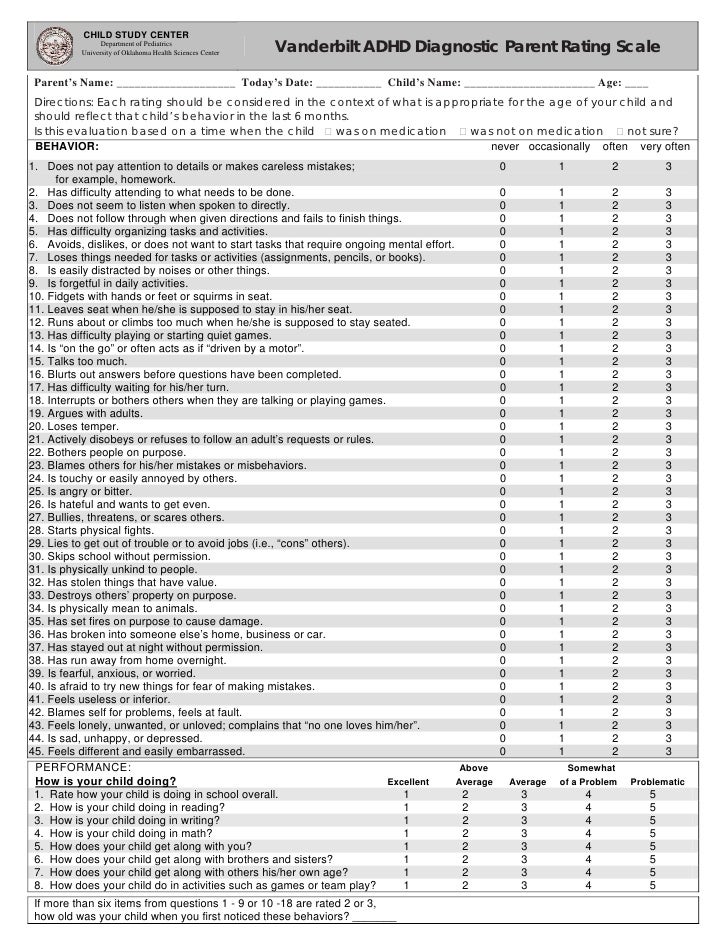ADHD is an acronym for Attention Deficit Hyperactivity Disorder
Vanderbilt ADHD Diagnostic Parent Rating Scale is a diagnostic questionnaire that is used to identify children who are at risk of ADHD. This scale is an appropriate tool for a child over 6 years and under 13 years, both to identify ADHD as well as to rule out ADHD when a child has symptoms, but the results of clinical assessment do not show a clear ADHD.
This scale was created by Vanderbilt University\’s Center for Human Development and Department of Psychology. The Vanderbilt ADHD Rating Scale is a research tool that helps psychologists study children and adults with ADHD.
It is not intended to diagnose ADHD in children or adults. Before using the Vanderbilt ADHD Diagnostic Parent Rating Scale, parents should talk with their doctor.
 Vanderbilt ADHD Diagnostic Parent Rating Scale
Vanderbilt ADHD Diagnostic Parent Rating Scale
The Vanderbilt ADHD Diagnostic Parent Rating Scale gives a rating of ADHD symptoms. The list of symptoms is divided into two parts:
Part I covers hyperactivity and Part II covers inattention. Each of these two parts is then sub-divided into two halves again. In part I, the symptom is listed in its positive form and in part II, in its negative form.
The ratings given are in the form of symptoms. The scale starts with a total of 18 points and then is reduced to 15. This is because of the two half points.
This diagnostic method has been found to cover 90% of the criteria of DSM-IV (Diagnostic and Statistical Manual of Mental Disorders, Fourth Edition) criteria for ADHD.